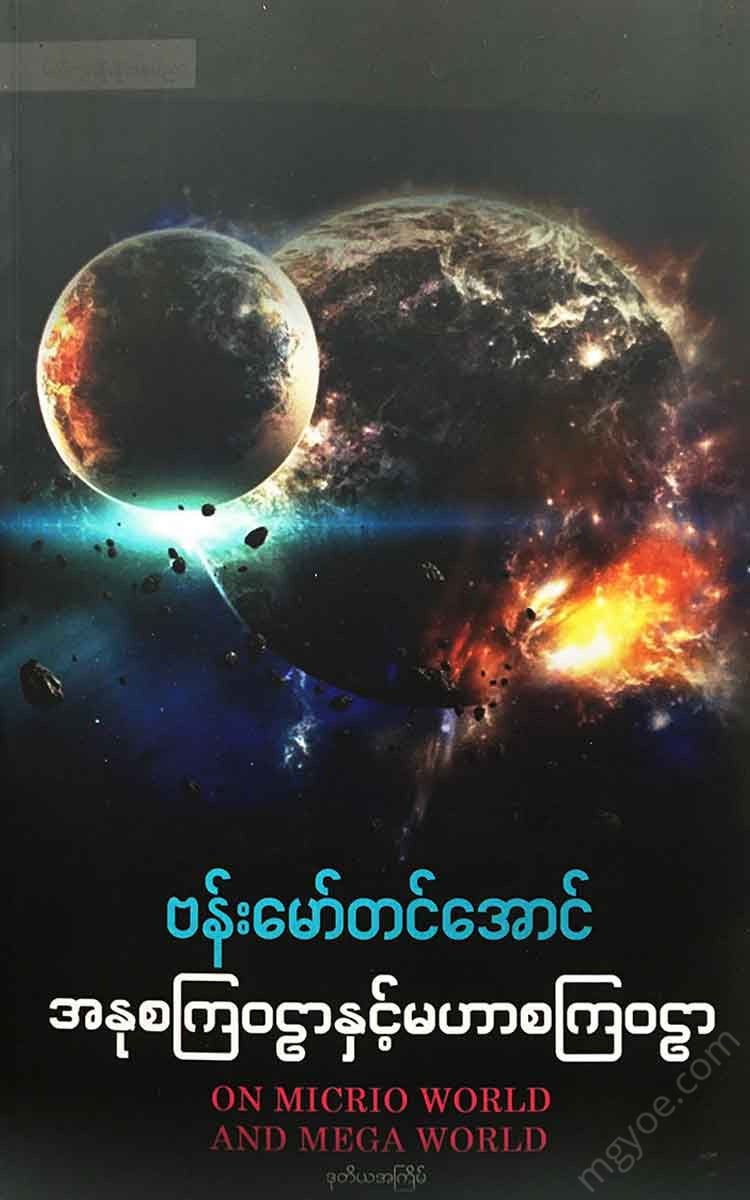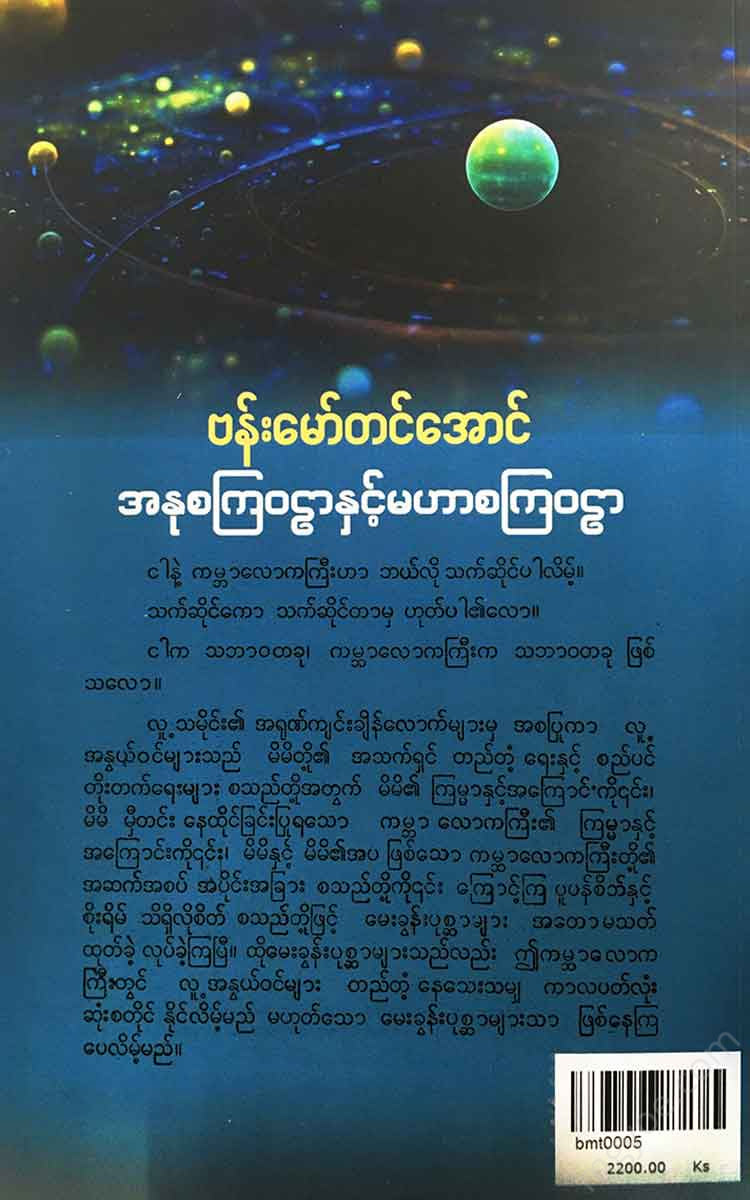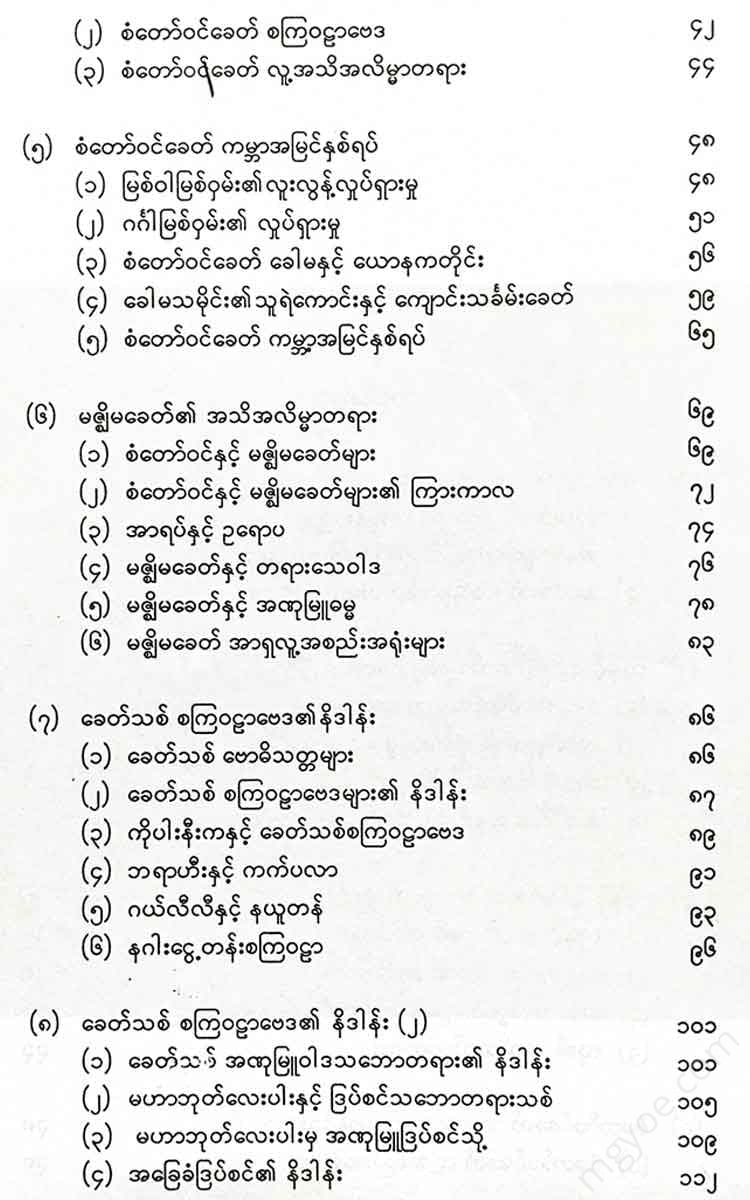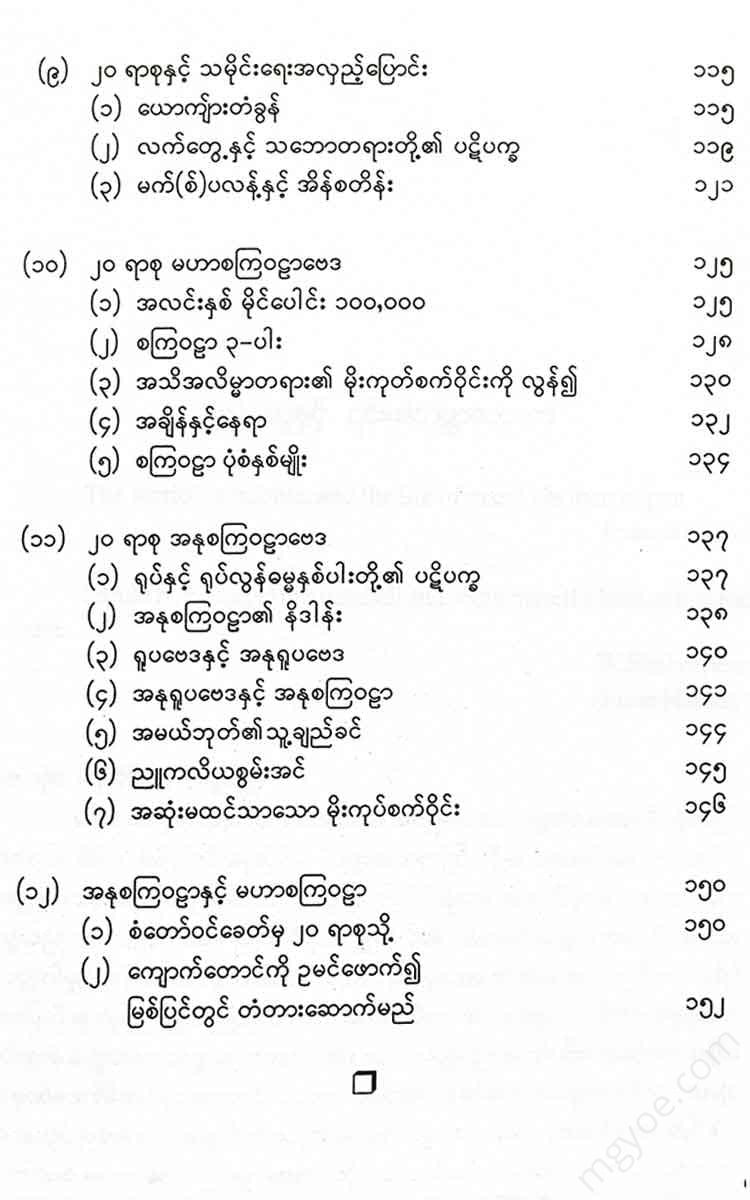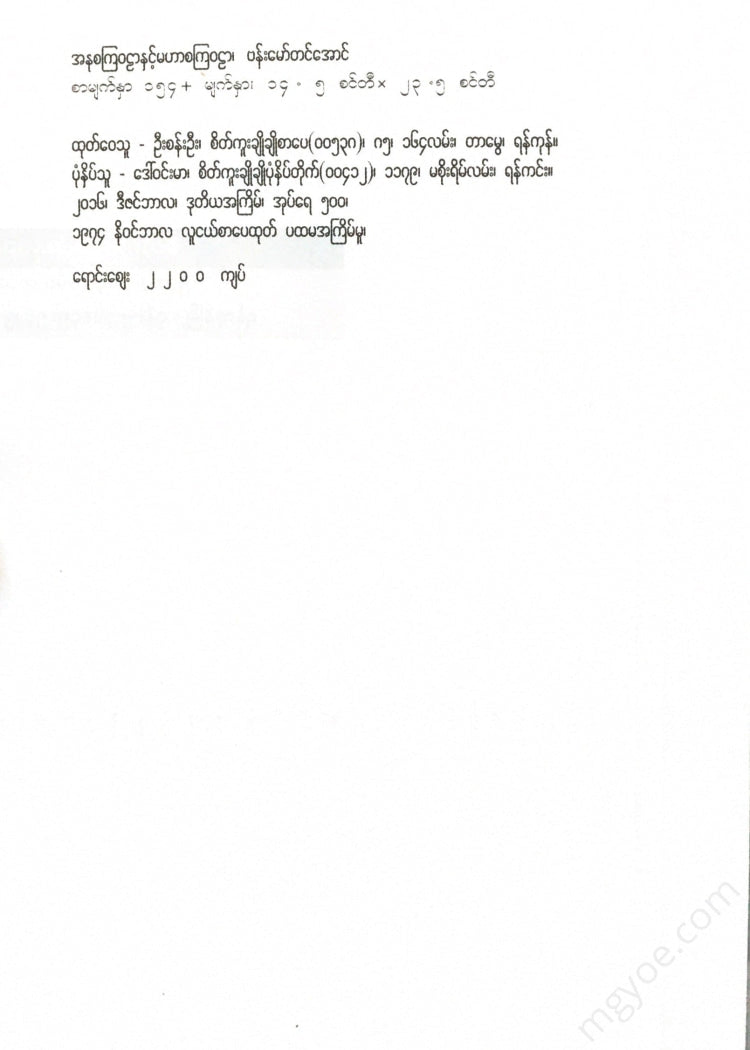စိတ်ကူးချိုချိုစာပေ
Bhamo Tin Aung - The Microcosm and the Macrocosm
Bhamo Tin Aung - The Microcosm and the Macrocosm
Couldn't load pickup availability
Francis Bacon
I could be bounded in an shell and count myself a king of infinite space,
W. Shakespeare (From Hamlet)
1. The never-ending question
Before man could distinguish himself from the world outside him, and the relationship between himself and the world in which he lived, and the parts and parts of himself, he was nothing more than a creature subjected to all the manipulations and creations of nature. He was nothing more than an animal that had to live in harmony with the shadow of nature that he was accustomed to. According to the naturalist Darwin, before the dawn of history, man was in a state of selection by nature. I think that there is no reason to dispute this fact now. Modern anthropologists have established this fact with solid evidence, has it not?
Man first rose from the condition of life that was created by nature to live in the four directions. This was not a small and easy task. It was a task that took millions of years of struggle. Then, one step at a time, man stood on his own two feet. He walked and lived. This was also not a small and easy task. It took a long time of struggle. However, man was not a creature that stood still for so long. He continued to exert himself and struggled out of the life that was chosen by nature. The task of escaping from the powerful nature was not an easy task. It took a lot of effort. It took many years. From the time when he gradually rose from this animal condition by his own labor and strength, man began to understand himself and the world outside him. He began to vaguely see and understand the connection and division between himself and the world in which he lived. Little by little, he began to perceive and understand.
Because he dared to resist the manipulation and control of the wild nature that he was accustomed to, and because he was able to develop his own strength, the original nervous system and brain structure of man changed greatly. The intelligence of man has made a leap from the innate level of consciousness called the instinctive mind to the level of thinking. Man has become a species of animal that not only thinks but also develops language and interacts with human society. I think there is no reason to dispute this fact. The American naturalist and archaeologist Morgan has well established this fact with strong evidence.
Since the time when human beings have evolved from the level of innate knowledge to the level of thinking knowledge, for the sake of their survival and development, man has thought and developed his knowledge and knowledge to understand and control himself and his destiny, the microcosm and the macrocosm, and the relationship and division between himself and the world in which he lives. He has thought and studied. He has studied. Such studies are as old as the age of the human race and as young as the age of the human race. In this world, human problems will continue to exist as old as the age of the horse. It is just a problem that will continue to exist as old as the horse.
What will I be? How will I become now? What will I become in the future? | With the desire for life and the desire for self, generations of people have tirelessly inquired about themselves and their destiny. They have thought about it. They have searched and studied it. Isn't it true that the present generation of people is still studying and researching this subject with great zeal? New people who will be born in the future will also continue to deal with this subject. I think there is no reason to doubt or doubt this fact.
As we begin to question and investigate our own fate, as we explore and live, we come to know the fates of the world, which are intimately connected with our own lives. How can we separate a play? Only when the actors and the stage are combined can we become the actors who are performing the play and the stage on which they are dancing?
How big will the world be?
How could such a large, diverse building come into being?
What will happen to the world in the future?
With a sense of anxiety and a desire to know, the human race has inquired into the world and its fate, which is connected with its destiny. They have pondered and pondered a lot. They have never tired of investigating. Just as the ancients worked hard on this matter, so the present generation is still working hard. What kind of ancestors will the new generation of the future have? Is there still reason to be skeptical about this?
As people question and investigate the fate and circumstances of themselves and the world outside of themselves, and as their knowledge and wisdom develop, they become increasingly curious about the connections, boundaries, or relationships between themselves and the world.
How will the world relate to me?
Is it relevant?
Am I a part of nature, is the world a part of nature?
Our ancestors have also inquired about the connections and divisions between themselves and the world in which they live. They have pondered. They have investigated. Just as our descendants have well inherited this matter, so too will future generations continue to preserve it. Who doubts that fact?
Since the dawn of human history, human beings have been constantly asking questions about their own fate and destiny, the fate and destiny of the world they inhabit, and the relationship between themselves and the world outside of themselves, for the sake of their survival and development. These questions will remain unanswered as long as human beings exist in this world.
2. Give to the cowherd, answer to the Bodhisattva
There is a saying in Myanmar: "If you don't know, ask, and if you don't know, cure." That saying is a teaching.
At the same time, the above-mentioned advice is supported by proverbs such as "If you ask, you will get a reply", "If you have a question, you will get an answer", etc. It seems that the ancient Burmese people derived these advices and proverbs from their various experiences and left them as a guide for later people.
The Burmese are a people who value beauty and elegance and who cherish it. They often embellish the teachings and proverbs they have left for their descendants with memorable, moving poems, fairy tales, and interesting stories. Regarding the proverbs that are often asked, there is a famous Burmese story called Maung Pauk Kaing. In that story, Maung Pauk Kaing, who is unable to study, a dragon king who falls in love with a human princess and loses his life, a beautiful princess who loves the dragon king, and a crow who is a crow.
However, there is also a saying in Myanmar called “A question is a cowherd, and the answer is a Buddha.” This saying is also a very serious saying. The word “cowherd” in this saying refers to people who have very little knowledge, wisdom, and reasoning ability, or are stupid. In modern terms, it refers to people who have to work hard from sunrise to sunset to earn a living, so they are not allowed to think for themselves. The word “Bodhisattva” refers to the wise men who are rich in knowledge and wisdom. In modern terms, it refers to the educated class who are often included in the circle of rulers and the powerful class. In any case, the true meaning of this proverb is that the Buddha, the supreme sage, had to work hard and diligently to answer the questions and problems that the cowherds, who were mere human beings, would ask at random.
